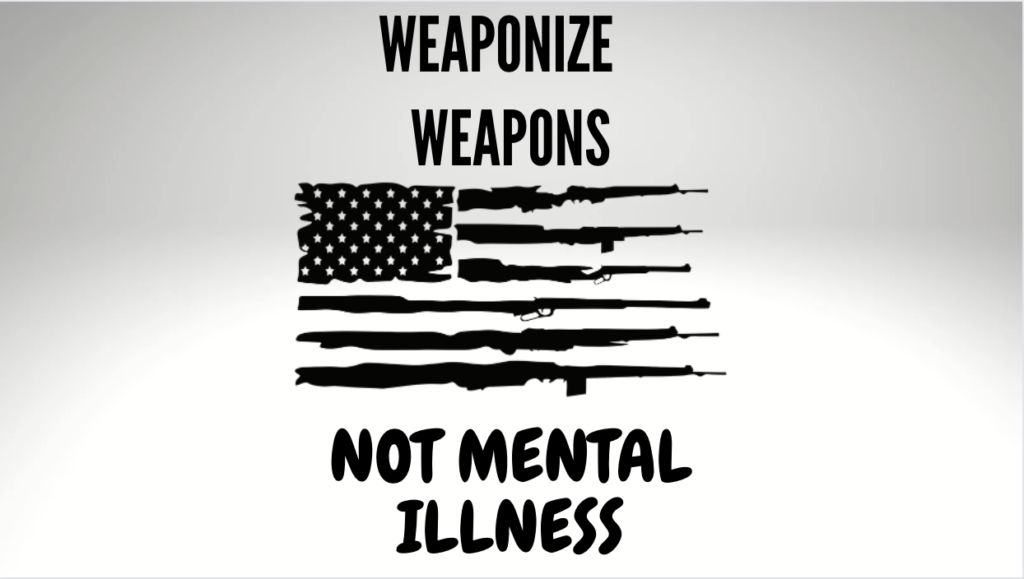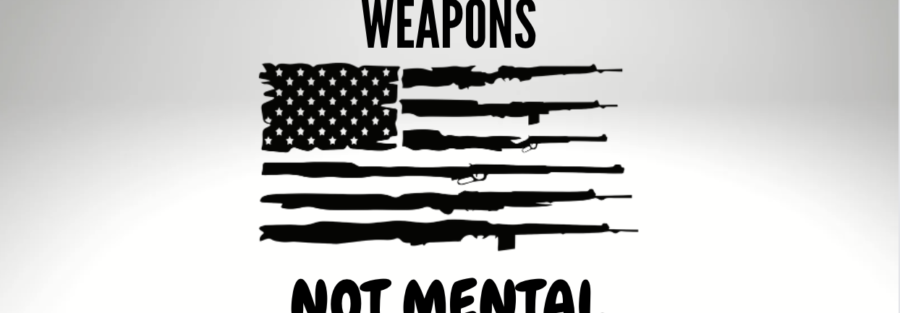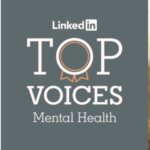
By: Natasha Bowman, JD
This edition of my newsletter will probably be one of the most controversial topics I’ve ever written on this platform. However, it needs to be said as a mental health advocate, and I’ll be the first one to raise my hand to say it. ” Stop weaponizing mental health and weaponize weapons.
Last month, I finally decided to apply for a TSA pre-check. If you’re unfamiliar with TSA Pre-check, enrollment in the program allows you to participate in an expedited security screening for domestic and some international flights. Additionally, you don’t have to remove your shoes, belts, or light jackets, and you will not have to remove your laptops or liquids from your carry-on. Pretty cool, huh? An application process for this mainly verifies your identity and ensures you are not a threat to national security. As I completed the form, I got to an interesting question: “have you ever been involuntarily committed to an inpatient facility for mental health or psychiatric reasons?” My answer was “yes.” A note stated, “if you answered yes to [# of question], you might want to reconsider your application.” I would be denied the opportunity to keep on my shoes while going through airport security because, at one time in my life, I was a threat to myself, not others, but myself.

When we think about why we have to take off our shoes while going through airport security, it is because one person, Richard Reid, later known as the shoe bomber, hid matches in his shoes to ignite explosive devices. After that incident, there would be no more keeping on your shoes while going through airport security—one failed attempt. But we all do it. We all take off our shoes hesitantly because we don’t want to be in danger or put anyone else in danger. We are committed to keeping our country and this world safe. Or are we?
Unlike the one failed attempt by a single shoe bomber, there have been 246 mass shootings in just 156 days into 2022. Let me repeat that, 246 MASS shootings. Among those include 19 elementary school-aged children who sat innocently in their classrooms. Others included race-targeted killings of Black people, many of whom reminded me of my two deceased grandmothers. After the Sandy Hook murders, I just knew that there would be stricter gun control laws, but year after year has passed, and nothing has happened. We as a country are content with taking our shoes off at the airport because a person “almost” put us in danger. Still, we are also totally content with arming people as young as 18-years-old with assault rifles that can decapitate the heads of little children (yes, that happened in Uvalde) without blinking an eye.
The purpose of this newsletter is not to advocate for gun control (although I am 100000% behind that). Instead, this newsletter is written to destigmatize mental illness related to violence and other harmful acts in our societies and workplaces. After the shootings in Buffalo and Uvalde, many politicians and gun advocates quickly resolved that better and more mental health services are needed to address the gun violence in America. While I agree that if you can walk into a school and kill dozens of kids under ten, you are not mentally stable, nothing supports that having access to mental health care would have prevented these shootings. Additionally, stricter background checks would not have prevented the shootings in Buffalo or Uvalde. While these murderers had the “right” to walk into a store and carry out an assault rifle the same day, I do not have the “right” to take off my shoes while going through security at the airport. Something is wrong there!
We’re getting a lot wrong when it comes to mental illness, including believing that people who are mentally ill are violent. According to the National Association of Mental Illness (NAMI), “hate is not a mental illness. People with serious mental illness commit only 5% of violent crimes in the U.S..” When we continue to blame hate, racism, and violence solely on mental illness, we are perpetuating the stigma. For those with mental illnesses and conditions, stigma can be detrimental to relationships and your ability to obtain job opportunities.
In a recent survey that my non-profit, The Bowman Foundation for Equity and Mental Wellness, conducted this year, the respondents indicated that while most workers admit they struggle with their mental health, disclosing mental health disorders to employers is still an issue. Just like politicians and gun advocates, employers believe that people working with a mental illness threaten their workplaces in some way, be it a physical threat, a threat to productivity, engagement, or success. Because of this, many respondents reported being retaliated against after disclosing their condition. Recurring themes of retaliation included:
- ❌ Reduced job assignments
- ❌ Less visibility on projects
- ❌ Unfavorable job evaluations due to absenteeism
- ❌ Micromanagement after disclosure
- ❌ Isolation
- ❌ Termination
Weaponizing mental illness is not the answer to our crisis. We should address the underlying factors that make our communities and workplace unsafe. In the workplace, it’s rarely mental illness itself. Instead, it’s:
- ➡️ toxic work environments
- ➡️ lack of mental health resources
- ➡️ lack of access to mental health providers
- ➡️ lack of engagement in conversations about mental health
- ➡️ punitive work cultures
Need I say more? Just like we need to take immediate gun action to save the lives of innocent people across America, we need to take immediate action to save the innocent people with mental illnesses who are harmless, functional, reliable people who deserve a chance in society and at work. Oh, and maybe one day, they will deserve a chance to keep their shoes on while going through security.




